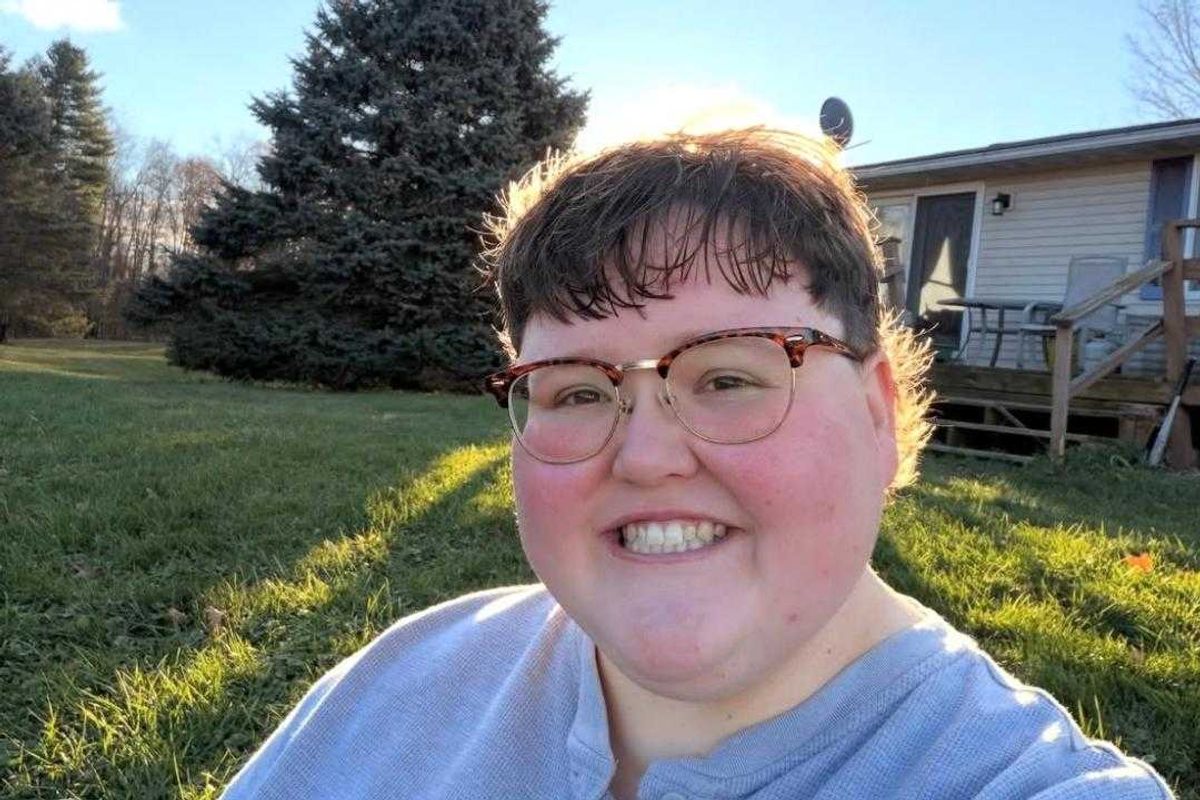Cowboy Kenna shares a beautifully counterintuitive message about people who have been bullied
"Sometimes helped people help people."
Cowboy Kenna shares inspiring videos about kindness.
Sometimes the most profound wisdom comes from people who have walked through the proverbial fire and come out the other side to talk about it. A young woman named McKenna (AKA Cowboy Kenna on social media) is one such human who goes out of her way, quite often, to remind people that kindness still exists. That all people, despite whatever they've been through, are deserving of love.
In one TikTok clip, she relays that she's not going to let the world define her. Instead she's going to take her own experiences and churn them into advice for others looking to live their best (and kindest) lives.
She begins with the simple notion: “I just wanted to say that…words matter. Whether good or bad, people are probably gonna remember what you said to them. Like I remember in elementary school, people would tell me my nose was too small for my face. Or just too small in general. Or I remember in sixth grade camp, somebody told me not to jump on the bed like the other girls because I'd break it. I remember my mom telling me that I shouldn't wear striped shirts because it's unflattering for a bigger person.”
@cowboykenna Words matter. Kindness matters. #beagoodhuman #kindnessmatters
She continues, “But on the other hand, I remember walking into the Apple Store and some lady told me that I was a ‘breath of fresh air.’ And I remember there was an older woman in the Walmart checkout line and she told me that my smile ‘made her day.’ And then the next day, somebody said the same exact thing.
So words matter. Whether you think so or not. Sometimes people will remember that for the rest of their lives.”
In another clip on Instagram, she begins by saying, “You guys know that saying that sometimes hurt people hurt people. Well, I think most of the time it can be true. But there's a few of us that have been hurt time and time again. I think we dedicate our lives to trying to make sure that no one else felt the way we felt.”
“And sometimes I get it. You know, once you're filled with so much negativity, and somebody else instills all that darkness and hatred and everything into you, it can be hard to see a brighter light. But this is just your sign that you're not what somebody else said to you or you're not what somebody else made you into.
You can change for the better. And sometimes hurt people don't hurt people. Sometimes we spend our lives doing the good stuff! And trying to make the world into a better place. So maybe helped people help people?
Let's see about that. Stay good. Do good. Be a good person. I love ya.”
Once again, there are clearly people who needed to hear this message. One person writes on Instagram, “Just dropping beautiful knowledge my friend!! You are changing the world in the best way! Keep being you!”
@cowboykenna I think you guys know it too. #lovewinsall
Upworthy had a chance to chat with McKenna about her life and inspiration for making these uplifting messages.
What inspired you to start making these videos?
“I started posting in July of this year, after I quit going to therapy! I wanted to challenge myself and my anxiety and do something out of my comfort zone or that scared me which is speaking or having that fear of judgment from others! I went with a 'throw myself into the deep end' approach haha! I didn’t have any ‘conventional’ talents other than empathy.”
Tell us a little about your background and some things you're passionate about?
“I grew up in Addison, Michigan, and still live here today. Went to Addison schools, I was homecoming queen my senior year so I would say I was well liked I suppose. I have always been passionate about helping others or being able to feel what others were feeling or the art of noticing. I love women’s basketball and Detroit football and going fishing.”
If you could tell the 9-year-old version of yourself something, particularly if/when you were going through a rough patch, what would you say?
“I would tell myself the story about ‘keeping your fork.’ It’s a story I’ve heard online about someone’s family member telling them to keep their fork from dinner for dessert afterwards at a restaurant. ‘Keep your fork, the best is yet to come.’”

